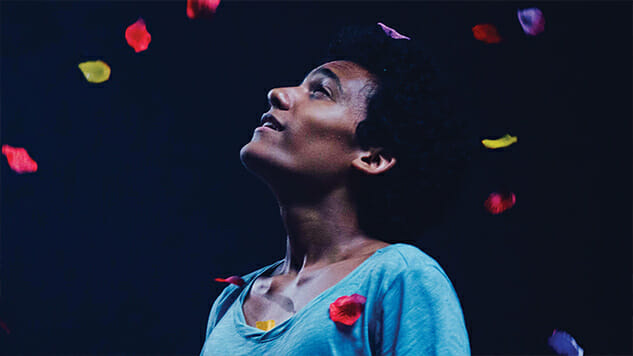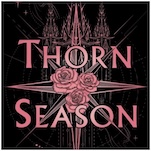Saturday Church
(2017 Tribeca Film Festival Review)
Photo: Tribeca Film Festival
Saturday Church is a racially and sexually diverse rumination on identity that defies simple definition in its low-key elegance. It’s a bold debut from writer/director Damon Cardasis, whose decision to milk his small budget for every ounce of creative color and sound that it could bear never stretches the film thin, only inflates it like a multicolored hot air balloon. Half musical and half drama, it finds balance in poetic stillness and exuberant motion.
The film, like Moonlight—its inescapable comparison—tracks black masculinity in self-discovery mode. Luka Kain, a star-ready relative newcomer so fresh that his voice dropped during filming, plays Ulysses—and, yes, the film quickly becomes his New York City odyssey. Ulysses has closeted gender dysphoria (for the sake of a clarity the movie majestically refuses, I will be using him/his pronouns for this review): He acts mechanically uncertain when putting on a boyish face for the world, only truly feeling graceful, beautiful and whole in a pair of his mother’s heels.
The problem is—well, the never-ending avalanche of problems are—that Ulysses is black and expected to be a man’s man as he’s raised, along with his younger brother, by a newly single mother (Margot Bingham). Additional conservative pilings-on come from Ulysses’ Aunt Rose (Regina Taylor), whose faith and unintentional cruelty are all too familiar in someone with Taylor’s self-satisfied and authoritative delivery.
From this struggle and repression bursts music. Love and pain bubble up in numbers showcasing DIY aesthetics and Broadway caliber pipes, only for the film’s realism to drag us back to Earth. Fiery boldness and cold reality intermingle in a story brewed from its inexperienced protagonist’s catalytic encounter with seasoned members of the LGBTQ community, caught in a warm palette and excitable single-camera cinematography. Ulysses begins exploring himself and the wide world of NYC queerdom, as the lingering shots of his face bridge his interior and the expression of his adventurous plans. Fear and doubt melt away as soon as he develops the courage to experiment and explore niches of his inner life exteriorly. When he goes to a pier known for trans sex workers and befriends a few merely with his meek insecurity, his unspoken identity struggles are immediately obvious. They take him to a local shelter/hangout known as Saturday Church.
-

-

-

-

-

-

-

-

-

-

-

-

-

-

-

-

-

-

-

-

-

-

-

-

-

-

-

-

-

-

-

-

-

-

-

-

-

-

-

-








































